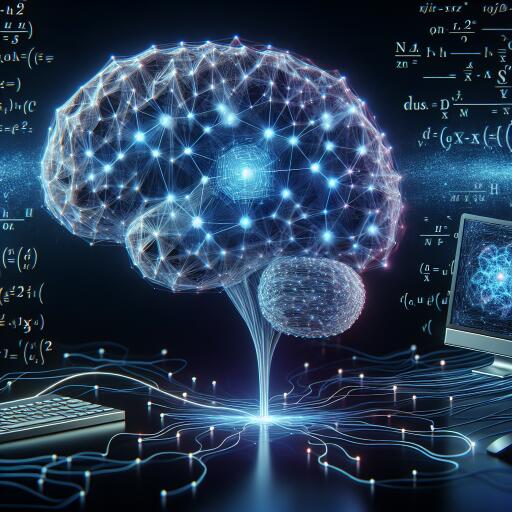Revolutionizing Communication: Deep-Learning Decodes Brain Waves for Enhanced Brain-Computer Interfaces
Brain-computer interfaces (BCIs) are at the forefront of medical technology, offering new avenues of interaction for individuals with motor or speech disorders. By enabling direct communication between the brain and external devices, BCIs promise to revolutionize how we interact with the world around us. Recent advancements in this field have brought us closer to more effective and user-friendly interfaces, thanks to the integration of deep-learning technologies.
Traditionally, non-invasive BCIs, which operate by analyzing brain waves through electroencephalography (EEG), have been plagued by performance inconsistencies. However, a groundbreaking study by Bin He and his team has demonstrated the potential of deep-learning decoders to substantially enhance BCI performance. This advancement centers on the ability of users to control digital interfaces, such as cursors on a screen, through intentional thought processes alone, without the need for physical movement.
In an intricate experiment involving twenty-eight adult participants, the study explored the power of imagination in manipulating digital objects. Participants were instructed to imagine moving their right hand to shift a cursor right, and their left hand for left cursor movements. To move the cursor upwards, they were to imagine moving both hands simultaneously, and to descend, they would imagine not moving their hands at all. This setup required participants to engage in sustained and focused imagination to achieve continuous control over a virtual object’s movement in a two-dimensional space.
The researchers compared the efficacy of two deep-learning architectures against a traditional decoder across seven BCI sessions. The results were clear and promising. As the study progressed, the performance of the deep-learning decoders not only improved but also consistently outperformed the traditional decoder by the conclusion of the sessions. This accomplishment highlights the significant potential deep-learning technologies hold in enhancing the accuracy and reliability of BCIs.
The success of using deep-learning-based decoders in a non-invasive BCI marks a monumental step forward, especially in scenarios requiring precision and continuous control. Participants were able to control a swiftly moving cursor on a computer screen, tracking randomly moving objects with remarkable accuracy—all by merely using their thoughts. This feat was achieved with the BCI solely relying on interpreting sensor-space brain waves, without any physical movement from the participants.
The implications of this study extend far beyond improved user interfaces for BCIs. It opens the door to the development of neuro-assistive robotics and devices that could offer unprecedented levels of independence to individuals with severe motor impairments. For both healthy individuals and those with impairments, the potential applications range from advanced prosthetics to novel forms of interactive gaming.
As we stand on the cusp of this technological revolution, it’s clear that deep-learning technologies are setting the stage for a new era in human-computer interaction. By enhancing non-invasive BCIs with these advanced decoding capabilities, we are not only broadening the scope of what is possible but also ensuring that the benefits of this technology can be accessed by a wider range of individuals, regardless of their physical capabilities.
As research in this area continues to evolve, the future of BCIs is promising. The convergence of neuroscience, computer science, and engineering is paving the way for breakthroughs that were once deemed the realm of science fiction. With ongoing advancements in deep learning and non-invasive BCI technologies, we are inching closer to a world where thought-controlled interfaces become a mainstream reality, offering new freedoms and enhancing the quality of life for people across the globe.










